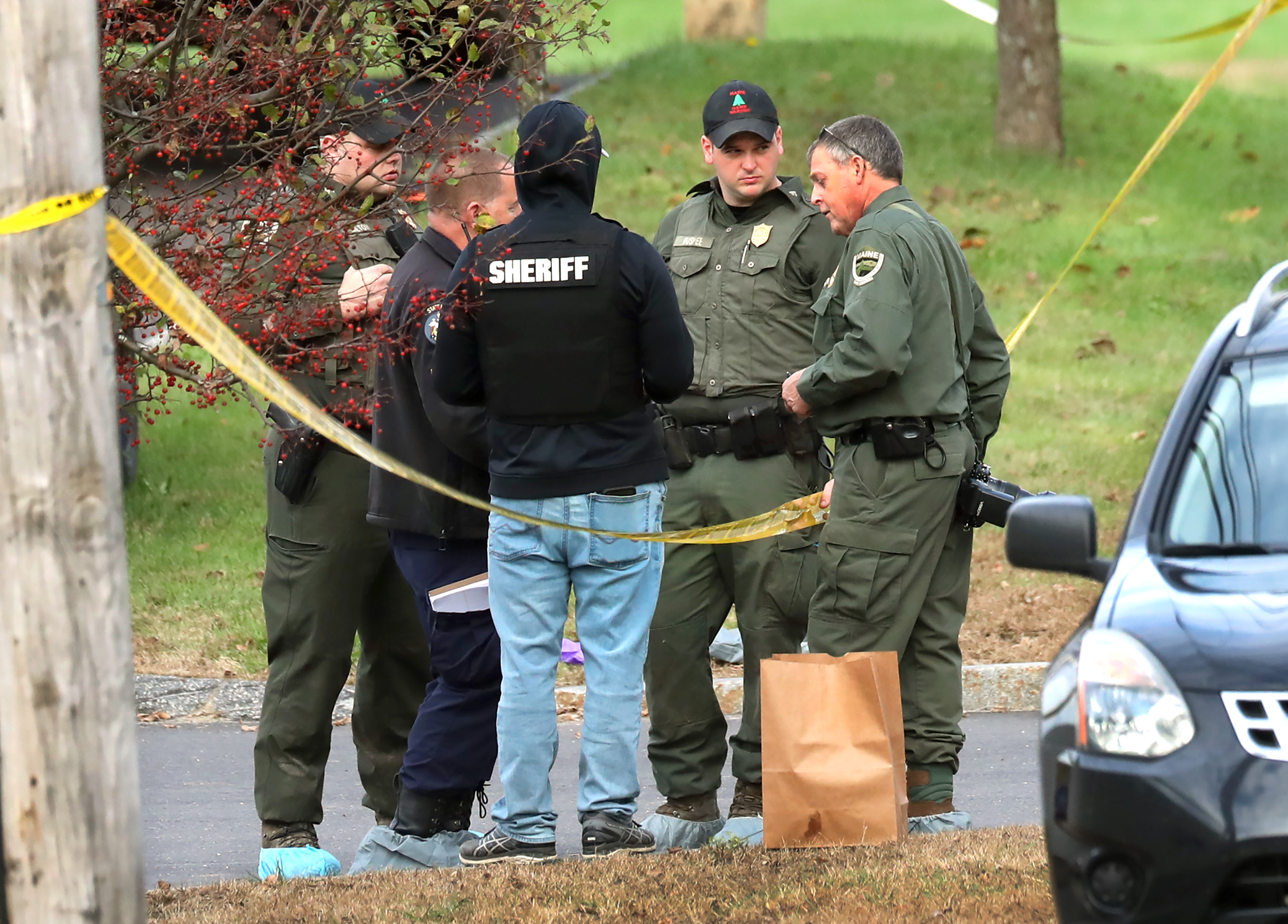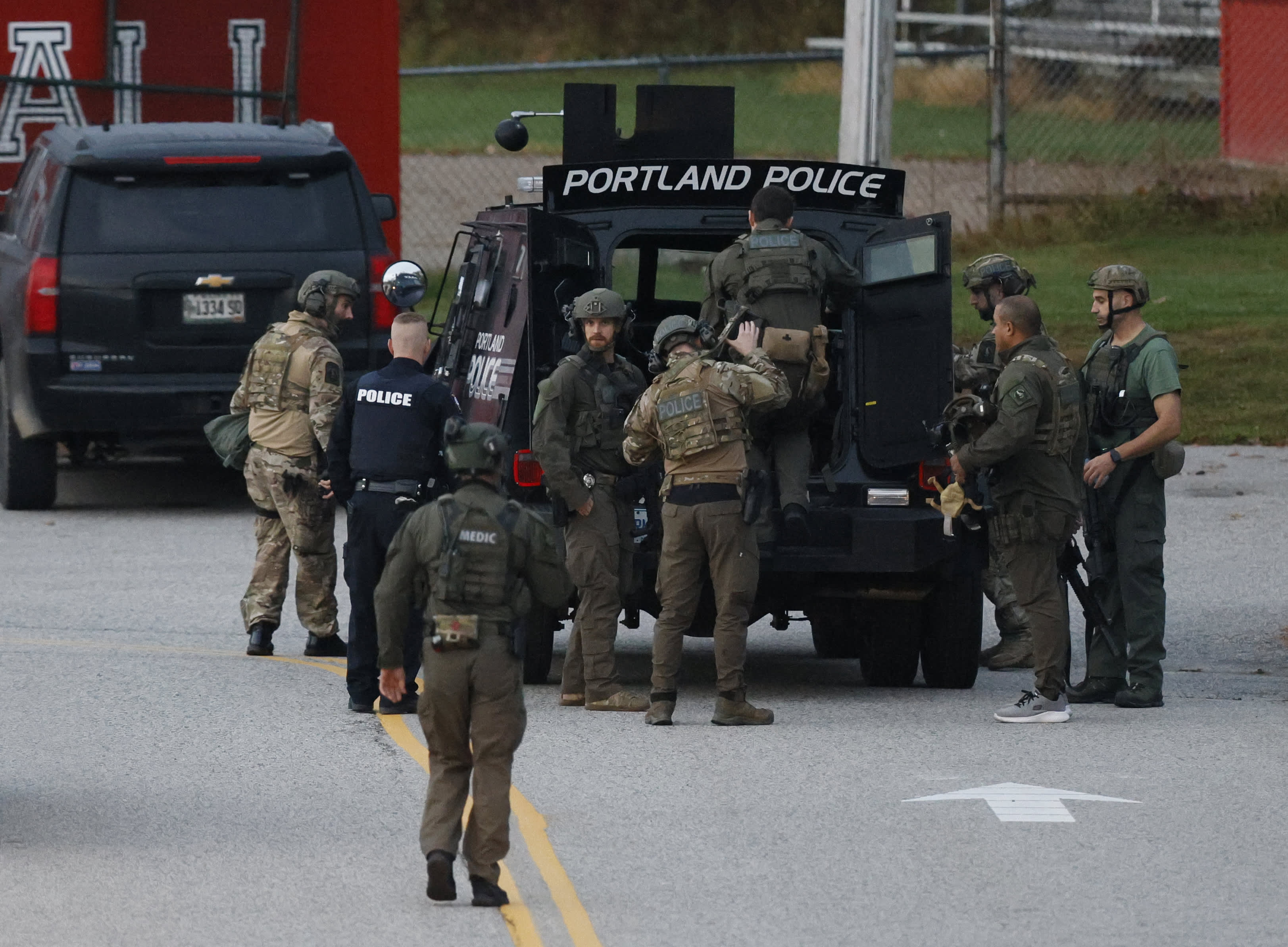The suspected gunman in a mass shooting in Maine that claimed at least 18 lives and injured 13 others is a U.S. Army Reserve veteran who sought mental health treatment over the summer, according to a law enforcement bulletin reviewed by NBC 5 Investigates and information law enforcement officials.
NBC 5 Investigates has confirmed with U.S. Army Reserves that Robert Card is assigned to the 3rd Battalion, 304th Infantry Regiment in Saco, Maine.
A manhunt was still underway Thursday afternoon for Card whose whereabouts were unknown.
Court records reviewed by NBC 5 Investigates show that a judge granted a prosecutor's request Thursday to withhold from public view certain information contained in Card’s arrest warrant.
The assistant attorney general wrote that "an arrest has not yet been made and disclosure of information in the affidavit may impede on the law enforcement’s ability to conduct their investigation. A number of witnesses still need to be interviewed."
Law enforcement sources told NBC News that over the summer his commanders sent him for psychiatric treatment after he reported hearing voices and made threats to shoot up a National Guard base. A law enforcement bulletin stated Card was committed to a mental health facility for two weeks before being released.
Maine laws allow for gun ownership without a permit, and two senior law enforcement officials told NBC News that the suspect legally purchased the weapon used during Wednesday night’s shootings.
Maine also has a "yellow flag" law that allows law enforcement to take away an individual’s firearms, but only after they’ve been taken into protective custody and if a medical professional finds a "likelihood of foreseeable harm."
It wasn't immediately clear what specific action was taken after the suspect’s mental health treatment.
Feeling out of the loop? We'll catch you up on the Chicago news you need to know. Sign up for the weekly Chicago Catch-Up newsletter here.
An emailed statement to NBC Boston from a court spokesperson said mental health cases and weapons restriction cases are confidential.
The family of the suspected gunman told NBC News that he had been experiencing an "acute" mental health episode for months and had a "manic belief" that people were saying negative things about him before Wednesday’s massacre.
On Thursday, NBC 5 Investigates spoke to Former State Rep. Kathleen Willis, who was the chief sponsor of Illinois' red flag law in 2018.
"In the state of Illinois, if you are put into a mental health facility, that automatically revokes your FOID card for a certain period of time, and I guess we need to recognize why was that not done in Maine or was this in the pipeline to be done and hadn’t followed through?" she said.
Illinois' law allows individuals to petition the court directly to remove firearms from their loved ones if they pose a risk of danger to themselves or others.
"And it’s not a permanent taking away of their guns," Willis said. "It’s a temporary taking away of guns until they get their life back in order."
Another major difference between the gun laws in Illinois and Maine: In wake of the Highland Park massacre last summer, Illinois passed an assault weapons ban.



